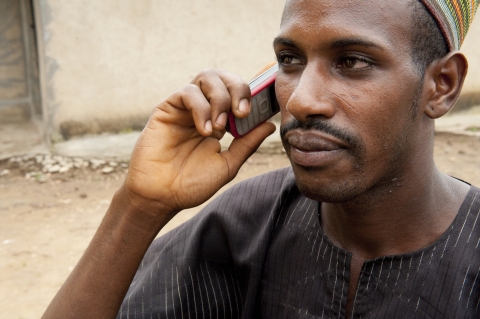
Seventy-six percent of all Internet traffic in Nigeria during May 2015 was mobile, according to KPCB’s 2015 Internet Trends report. In South Africa, the figure was 57 percent. For comparison’s sake, mobile traffic in the U.S. made up only 22 percent of total traffic during the same month.
Africa is the second biggest mobile market after Asia and mobile subscriptions are shooting up rapidly. But in 2013, 95 percent of Tanzanians, 62 percent of Nigerians and 61 percent of Kenyans still did not have any access to the Internet, according to World Bank data. Even in South Africa, one of the most advanced economies on the continent, over half of all households didn’t have any access to the Internet in 2013.
So this is a huge challenge - but also a significant business opportunity - for newspapers and media companies across Africa who could get millions of new customers as people come online, but only if they engage with these citizens now and find out how they will want to receive information or news via their mobile devices in the future.
My fellowship focuses on building engagement around health and development news as part of the Code for Africa team. Code for Africa has had great success with projects that focus on creating “actionable data” for citizens. Key examples include the GotToVote project, which helps people exercise their right to vote by simplifying the process of finding registration centers and checking electoral records; and the creation of a suite of health tools designed to help check up on doctors in Kenya. In these cases, Code for Africa took complicated data and made it personally relevant to individuals through simple user inputs. This is where we see the future of news and information services across Africa.
In the mobile health - or “mHealth” - space, technological experimentation around generating citizen action or engagement has been lead mainly by charities or NGOs like UNICEF and the Gates Foundation rather than media organizations. Many initiatives in this space have a deliberately narrow focus on issues like maternal health (MAMA, TotoHealth) or HIV/AIDS treatment (TRACnet) which has lead to advances in education and awareness around these targeted issues.
So how can African media organizations learn from these approaches and adapt? Investing now in SMS or mobile experimentation could pay huge dividends in the long run. Companies that work to reach local audiences before they even come online stand a better chance of competing in the face of expanding mobile initiatives from Google and Facebook. Several tools for building SMS/USSD applications are now available for anyone to use including RapidPro, FrontlineSMS, Vumi, Voto and GroundSource so these organizations don’t need to have strong technology teams to launch experiments.
Fascinating ongoing projects like TRACfm in Uganda show the benefit of using SMS to engage and gather news. Their recent poll of 1,852 Ugandans via SMS radio polls discovered that 20 percent of people who wanted to register for Uganda’s 2016 elections were unable to.
By stepping up their efforts in the mobile space, African media organizations have the chance to discover what appeals to these new audiences, and how in the future they could generate localized, personalized information services that people would be willing to pay for via mobile money.
This post is also published on IJNet, which is produced by ICFJ.
Main image CC-licensed by Flickr via World Bank Photo Collection.